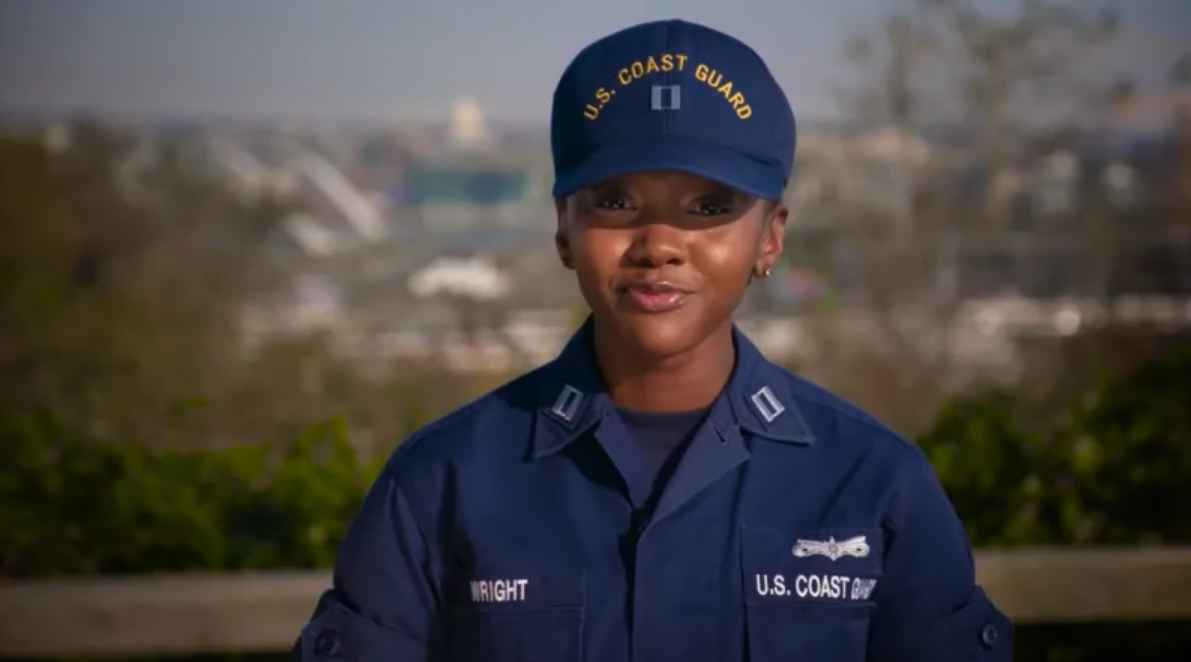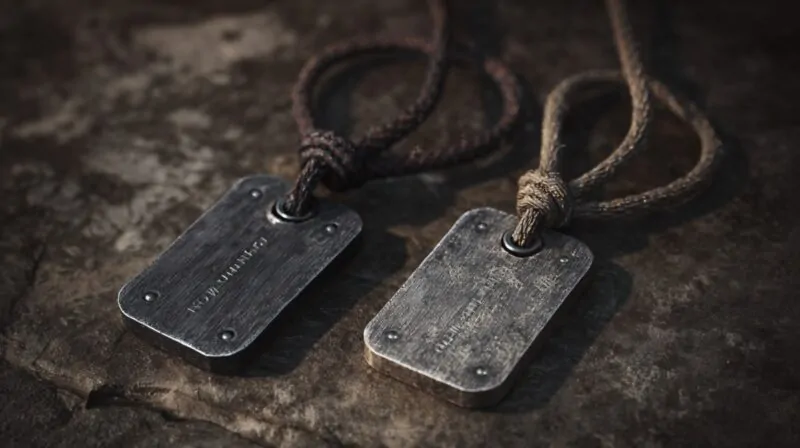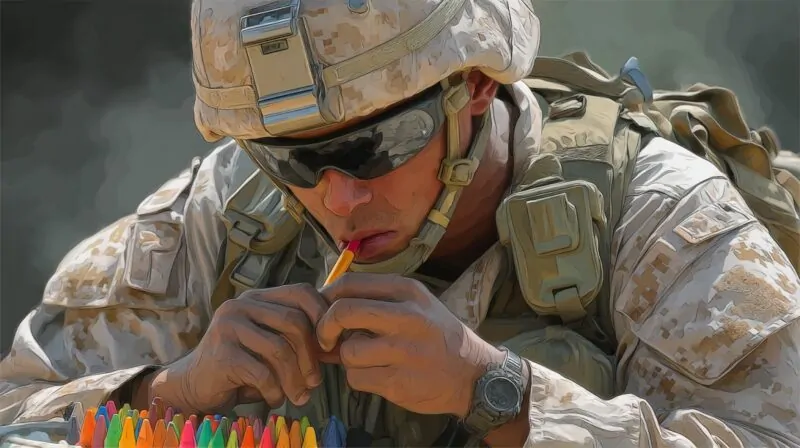Joining the Coast Guard Reserve offers a unique opportunity to serve your country while maintaining a civilian career.
To join the Reserve, you need to meet specific eligibility requirements, including age, citizenship, and physical fitness standards.
The enlistment process is nearly identical to that of active duty but comes with additional considerations tailored to reservists.
As a member of the Coast Guard, you’ll be part of a contingency-based workforce prepared to respond to national emergencies and natural disasters.
Beyond the honor of serving, the Coast Guard Reserve offers substantial benefits, including professional training, educational opportunities, and healthcare.
Let us talk about it in greater detail.
Table of Contents
ToggleEligibility Criteria
| Criteria | Details |
|---|---|
| General Age Range | Applicants must be 17-40; under 18 needs parental consent. |
| Age Waivers | Waivers available for prior military experience. |
| Officers | Max age for officers up to 41, based on role and experience. |
| Citizenship Requirements | Must be U.S. citizens or permanent residents; some roles need citizenship. |
| Education Requirements | High school diploma (GED) required; officers need a bachelor’s degree. |
| Medical and Physical Fitness Standards | Must pass physical exam; waivers for some medical conditions possible. |
| Background and Conduct | Background checks required; felonies and substance abuse may disqualify. |
| Commitment and Training | Complete basic training; serve one weekend monthly and two weeks yearly. |
To be eligible for the Coast Guard Reserve, you must typically be between the ages of 17 and 40. If you are 17, you will need parental consent to enlist.
There are age waivers available for certain roles, especially if you have prior military service.
For officers, the maximum age can be up to 41, depending on prior service and position requirements.
Educational Background
@finenavyday Reply to @happyclan27 #finishschool #military #bootcamp #navy ♬ original sound – FND
You must possess a high school diploma or equivalent education to enlist in the Coast Guard Reserve, such as a GED.
For those who have pursued higher levels of education, such as associate’s or bachelor’s degrees, there are expanded opportunities within the Coast Guard Reserve.
- Specialized roles
- Higher ranks
- Increased responsibility
For example, individuals with college degrees may be eligible to enter officer training programs, which can fast-track them to leadership positions where they oversee teams, manage operations, or handle more complex tasks.
Certain technical or specialized roles might require specific qualifications, such as a degree in engineering or healthcare.
Obtaining additional certifications or degrees can enhance your career prospects within the Reserve.
Physical Fitness Standards
You will undergo a fitness assessment that includes running, push-ups, and sit-ups.
The standards are gender and age-specific, ensuring that all recruits are physically capable of performing their duties.
Regular physical training is required to maintain these standards, as physical fitness directly impacts mission readiness.
Legal Obligations
Any history of felonies or serious misdemeanors can disqualify you. If you have prior offenses, a thorough review and potential waivers might be necessary.
To serve in the Coast Guard Reserve, you must meet specific legal and ethical standards, as a clean legal record is crucial to maintaining the integrity and reliability expected in military service.
Criminal Record
A history of felonies or serious misdemeanors can result in disqualification from service. If you have prior offenses, these may undergo a thorough review, and in some cases, you may need to obtain a waiver.
The waiver process is rigorous, ensuring that only those who have demonstrated accountability and rehabilitation are considered. You can run a criminal records lookup on yourself using online tools like PublicRecord before applying for the job.
Drug Policy and Screening
The Coast Guard Reserve maintains a zero-tolerance policy toward illegal drug use. Any past or current use of illegal substances is assessed during the enlistment process, and all reservists are subject to routine drug screenings as part of ongoing service.
These screenings are intended to ensure a drug-free environment, upholding the safety and readiness of all members.
Importance of Honesty
Transparency about your legal history is essential when you begin the enlistment process.
The Coast Guard Reserve values integrity, and providing complete and truthful information allows for a fair assessment of eligibility.
Concealing or misrepresenting any information about your legal background can have serious repercussions and may lead to disqualification from the Reserve.
Citizenship and Security Clearance
You must be a U.S. citizen or a legal permanent resident to join the Coast Guard Reserve.
Certain roles, especially those involving sensitive information, might require U.S. citizenship and the ability to obtain a security clearance.
- Detailed background check
- Covering personal
- Financial
- Professional aspects
Securing clearance is essential for roles that require access to classified information.
Enlistment Process
Initial Contact and Pre-Screening
Your journey starts by contacting a Coast Guard recruiter.
The recruiter will provide information about the Coast Guard Reserve and assess your eligibility.
During this stage, factors such as age, citizenship, and educational background are reviewed.
You’ll also undergo a preliminary medical screening to identify any potential disqualifiers early on.
Application Steps
After the pre-screening, you’ll complete the necessary application forms. These include personal information, education history, and prior military service if applicable.
Accurate and thorough completion of these forms is crucial to avoid delays.
You’ll also be required to take the Armed Services Vocational Aptitude Battery (ASVAB) test.
The exam assesses your skills and aptitudes, helping to determine the best roles for you within the Coast Guard Reserve.
Military Entrance Processing Station (MEPS)

Next, you’ll visit a Military Entrance Processing Station (MEPS). Here, you’ll undergo a comprehensive medical examination.
- Vision Check: Ensures that your eyesight meets the visual acuity standards necessary for duties that require sharp and accurate sight.
- Hearing Test: Evaluates your ability to detect a range of sounds and tones, crucial for communication in the field.
- Dental Examination: Verifies that your oral health is stable, as untreated dental issues can lead to complications in rigorous environments.
- Physical Fitness Assessment: Assess your overall strength, flexibility, and endurance to confirm your physical preparedness for training and service.
You’ll also meet with a counselor to discuss your ASVAB results and potential career paths in the Coast Guard Reserve.
Completing all MEPS procedures is mandatory to ensure you are physically and mentally fit for service.
Taking the Oath of Enlistment
Taking the Oath of Enlistment is the culminating event in your enlistment process. The formal ceremony marks your commitment to serve in the Coast Guard Reserve.
You will recite the oath in front of a commissioned officer, pledging to support and defend the Constitution of the United States.
This oath signifies your transition from a civilian to a service member. After taking the oath, you will receive your official enlistment orders, outlining your next steps, including basic training.
Training and Education

This initial phase is designed to instill the essential skills and knowledge required for all reservists. Basic training focuses on physical fitness, teamwork, and fundamental maritime skills.
| Training Component | Description |
|---|---|
| Physical Fitness | Builds strength, stamina, and endurance for challenging duties and missions. |
| Teamwork and Discipline | Fosters cooperation, leadership, and trust to ensure effective teamwork. |
| Basic Seamanship | Teaches essential maritime skills for effective operation on and around water. |
| Water Survival Techniques | Trains survival skills to remain calm and prepared in emergency water situations. |
| Military Drill Practices | Sharpens discipline, attention to detail, and unity through synchronized drill movements. |
Specialized Training
After completing basic training, you will start with specialized training tailored to your specific role and interests within the Coast Guard Reserve.
- Law Enforcement:
- Maritime law enforcement tactics
- Search and seizure operations
- Anti-smuggling procedures
- Public safety and security protocols
- Environmental Science:
- Marine pollution control and response
- Wildlife and habitat preservation
- Environmental hazard management
- Coastal ecosystem protection initiatives
- Engineering:
- Ship and equipment maintenance
- Basic and advanced repair techniques
- Structural integrity and safety inspections
- Electrical and mechanical system operations
- Healthcare:
- Basic and advanced first aid training
- Emergency medical response
- Medical logistics and field medicine
- Health and wellness assessments for personnel
Depending on your assignment, you might receive training on operating and maintaining specialized equipment or handling search and rescue missions.
Through this specialized training, you’ll gain hands-on experience and theoretical knowledge that will enable you to carry out specific tasks and handle real-world scenarios in your area of focus
Leadership Development

As you advance in your career, you will have access to leadership development programs that prepare you for taking on more responsibilities. These programs are designed to build your leadership skills, focusing on effective communication, decision-making, and team management.
They aim to develop leaders who can handle stressful situations with confidence and guide their teams through various challenges.
Continuous Education Opportunities
The Coast Guard Reserve places a strong emphasis on continuous education, recognizing its value in both personal and professional growth.
- Tuition Assistance: Financial support is available for pursuing further education or earning additional certifications.
- Advanced Degrees and Specialized Courses: You can take advantage of opportunities to pursue advanced degrees or enroll in specialized courses that align with Coast Guard responsibilities.
- Staying Updated: Continuous education ensures that you keep pace with the latest developments, skills, and knowledge in your field.
- Career Advancement: Educational benefits can accelerate your growth within the Coast Guard Reserve and open doors for advancement in both your military and civilian careers.
Roles and Responsibilities

Operational Missions
As a member of the Coast Guard Reserve, you will be involved in a variety of operational missions.
- Safety of ports
- Waterways
- Coastal areas
You will also support national defense operations, working in coordination with other army branches to protect the nation.
Additionally, you’ll engage in domestic disaster operations, providing critical support during natural disasters such as hurricanes, floods, and wildfires.
Your role may also involve search and rescue missions, helping to save lives at sea.
Support Positions
These roles are essential for the smooth functioning of the Coast Guard. You might work in logistics, managing the supply chain and ensuring that equipment and supplies are where they are needed.
Other support roles include administrative positions, where you will handle important paperwork, and technical positions, where your skills in areas such as information technology or engineering will be invaluable.
Deployment Expectations
Being a member of the Coast Guard Reserve means you must be ready for deployment. Deployments can occur both within the United States and internationally.
You may be deployed for short-term missions lasting a few days or weeks or for longer-term assignments that extend over several months.
Flexibility and readiness are key, as deployments can happen at any time, often with little advance notice.
It is important to maintain a high level of physical fitness and readiness to respond quickly and effectively to a variety of situations, ranging from emergency response to military operations.
Benefits and Compensation

Financial Benefits
As a member of the Coast Guard Reserve, you receive monthly pay for drill weekends. For instance, a petty officer second class with four years of service earns approximately $397.08 per month for each drill weekend.
When activated for full-time service, you are eligible for full pay and allowances, including basic allowance for housing.
You also benefit from signing bonuses and special pays depending on your role and expertise within the Coast Guard Reserve.
Healthcare and Insurance
When on active-duty orders for more than 30 consecutive days, you and your family are eligible for the same comprehensive coverage as active-duty members.
- Medical
- Dental
- Vision insurance
For routine periods of inactive duty, you can still enroll in TRICARE Reserve Select, a premium-based plan available to reservists.
The plan offers similar benefits to active-duty healthcare, ensuring you and your family can access quality care throughout your service.
Retirement Plans
After completing 20 years of qualifying service, you become eligible for retirement benefits. Unlike the immediate pension received by active-duty members, reservists start receiving their retired pay at age 60.
In addition to the retirement pay, you can participate in the Thrift Savings Plan (TSP), a defined contribution plan similar to a 401(k). Contributions to the TSP can provide significant retirement savings, supplementing your pension and ensuring financial stability in retirement.
Education Benefits
You can receive tuition assistance for courses taken during off-duty periods, helping to ease the financial burden of college tuition.
Reservists may also qualify for the Montgomery GI Bill-Selected Reserve (MGIB-SR), providing monthly stipends for degree and certificate programs. Additionally, the Post-9/11 GI Bill may be available depending on your service duration, covering tuition, housing, and books.
These educational benefits are tailored to enhance your career and personal development, making it possible to pursue academic goals while serving part-time.
The Bottom Line
- Valuable skills
- Education
- Career benefits
With manageable entry requirements, such as a high school diploma or equivalent and a commitment to basic and specialized training, the Reserve provides an accessible pathway for those seeking to make a meaningful impact.
Members not only contribute to critical missions like maritime law enforcement, environmental protection, and public safety but also receive personal and professional benefits, including job stability, educational support, and advancement opportunities.







